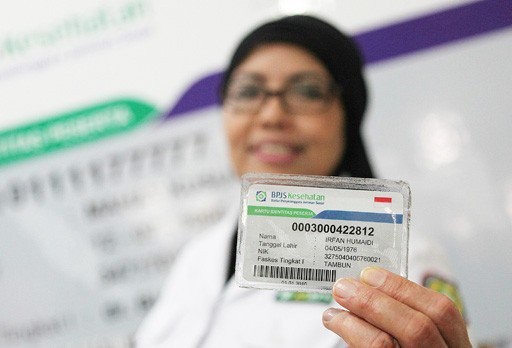Popular Reads
Top Results
Can't find what you're looking for?
View all search resultsPopular Reads
Top Results
Can't find what you're looking for?
View all search resultsCOMMENTARY: Foreign boost might get Indonesian healthcare airborne
Change text size
Gift Premium Articles
to Anyone
T
he condition of the country’s healthcare system couldn’t be more ironic. While it is dubbed as one of the potentially biggest markets in the world, Indonesia seems incapable of giving patients more than the most basic of care.
Barely having recovered from a nationwide fake vaccine scandal that affected more than a million children, a recent study by the University of Indonesia (UI) has uncovered potential fraud in the National Health Insurance (JKN) scheme’s hospital claims costing as much as Rp 7 trillion (US$526.7 million).
These incidents further call into question the government’s capacity to manage the healthcare scheme, which already covers 170 million individuals, one of the largest in the world. Hospitals and health facilities, which are still far from adequate in quantity, are still weak at delivery points and with little scrutiny from the government.
Although the meager care is a logical consequence of the scant system, it is hardly tolerable. The government should prioritize the expansion of healthcare provision as more people register for national insurance. The persistent lack of health infrastructure facilities, as a result of the domestic failure to keep up with growing demand for care, should no longer be accepted as an excuse.
The ideal is to have the government build the health infrastructure by establishing health centers in remote areas that are less attractive for the private sector. But as the government is grappling with financing its more than $400 billion worth of infrastructure projects, it may consider opening up the domestic healthcare sector to foreign investors and providers to accelerate expansion.
Indonesia has been seen as a promising market exactly because of the largely underdeveloped health system. It is among the 15 fastest growing markets globally, according to Oxford Business Group, which estimated that the country’s healthcare sector will be worth $50 billion by 2020.
In the earlier years of the JKN, rolled out by the Health and Social Security Agency (BPJS Kesehatan), it has already driven sales of medical devices, such as MRI machines, PET-CT scanners, most of which are imported. The market is still lucrative despite complicated import mechanisms.
The presence of foreign operators may increase the availability of services and spur competition in the sector. The problem of opening the domestic healthcare market to foreign investors, however, is more than just cutting red tape and rolling out the red carpet to investors.
The government should also improve monitoring of healthcare providers, especially hospitals and other medical centers in which malpractice frequently occurs and in which the fake vaccines were found.
Without a strong regulatory framework and effective monitoring system, the opening of the domestic healthcare market will only lead to further abuse of patients.
The UI study found that among the irregular claims from hospitals were an abnormally high number of babies delivered via C-section under the JKN, about 54 percent of 1.5 million babies delivered from January 2014 to July 2015. The unusually high prevalence of this procedure, which normally should be less than 10 percent of total child births, increased substantially the sums that had to be paid out by BPJS Kesehatan.
Even if more foreign providers are present, a lack of monitoring of the quality of drugs and treatments will prevent improvement in the quality of service, while costs will rise as a result of imported drugs and treatments. And how much will people have to pay for the government’s basic insurance if costs spiral out of control?
The government should encourage investors and providers that can accept the modest market that characterizes the country. These investors should have an interest in producing generic drugs and have the capability to expand services for lower- and middle-income patients under the JKN.
More also should be done to improve the JKN’s tariff system. With evidence of mismanagement, the BPJS Kesehatan should not rely on a reimbursement system to hospitals to support the health scheme. The agency should instead limit drugs and types of treatments that can be provided by hospitals and health centers under the insurance scheme. It can also start to directly procure drugs from pharmaceutical companies, rather than only accepting bills from hospitals.
Bargaining directly with pharmaceutical companies and other providers is a common practice in more advanced national insurance schemes in other countries.
In France, doctors and other health professionals in private practice are paid directly by patients. Health centers are still reimbursed by fees and charges set nationwide, while state hospitals receive annual operating budgets. In the UK, the National Health Service (NHS) directly carries out its own drug procurement.
These two pioneers in national health insurance schemes are not without criticism. Both are currently experiencing deficits amid an economic slowdown and ageing populations in the region.
The biggest disappointment is finding that the JKN is failing before it even gets around to extending healthcare to all of the country’s population. It is like firing up the gas in the burner but the hot air balloon still never being able to get off the ground.










